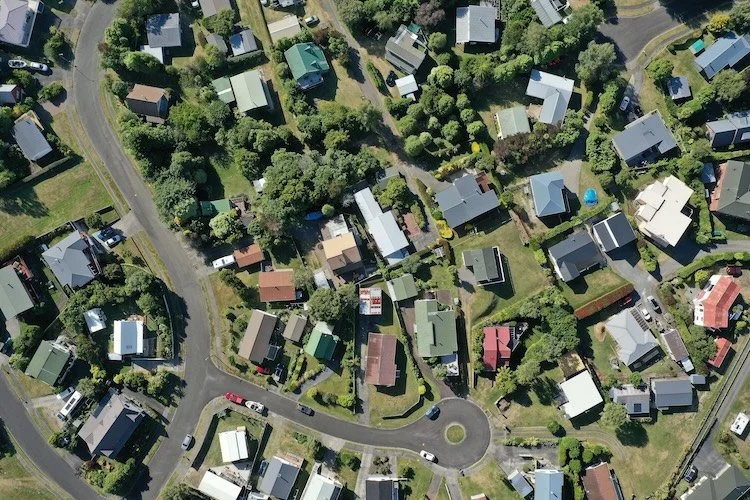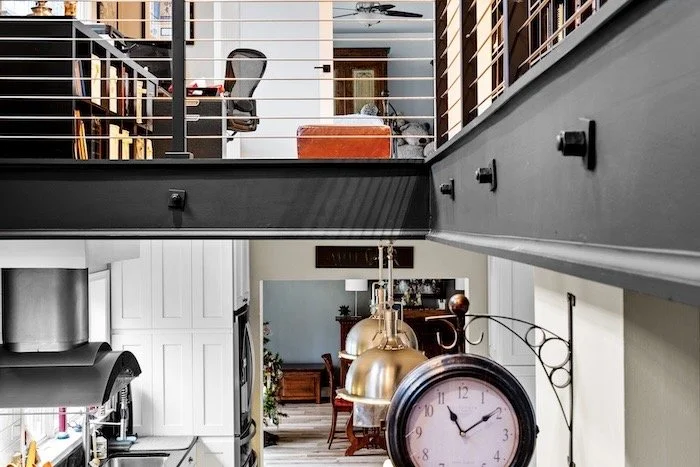How to Budget for a Home Addition in McLean, VA
/How to Budget for a Home Addition in McLean, VA
Introduction: Smart Planning for a Successful Expansion
McLean, Virginia is one of the most desirable residential areas in the country, known for its stately homes, beautiful neighborhoods, and proximity to Washington, D.C. As property values climb and inventory tightens, many homeowners are choosing to invest in home additions rather than relocating. Whether it’s building a larger kitchen, adding a sunroom, or creating a luxurious new primary suite, a well-planned addition can dramatically enhance your home's value and functionality.
However, the key to a successful addition isn’t just great design—it’s smart budgeting. Without a clear financial plan, costs can escalate quickly, causing stress, delays, and even unfinished projects. In this guide, we’ll walk you through everything you need to know about budgeting for your home addition project in McLean, VA, including practical tips for making smart financial decisions.
Step 1: Set Clear Project Goals
Before you even begin gathering quotes, it's critical to define exactly what you want to accomplish with your home addition.
Ask yourself:
What specific spaces are you creating? (Bedroom, kitchen expansion, family room, home office?)
How large will the addition be?
What level of finishes are you aiming for (standard, semi-custom, luxury)?
Is the addition mainly for personal use, resale value, rental income, or multi-generational living?
Clear goals help your architect, contractor, and design team create more accurate estimates, and help you avoid costly changes mid-project.
For example, a basic 200-square-foot bump-out may initially seem inexpensive, but if you later decide to add a bathroom, rework the roofline, or install luxury finishes, your costs could double.
Pro Tip: Prioritize your "must-haves" vs. "nice-to-haves" early. This makes decision-making easier when tough budget choices arise later.
Step 2: Understand Cost Factors Specific to McLean
Home addition costs in McLean are higher than the national average due to several regional factors:
1. Permit and Regulatory Fees:
McLean falls under Fairfax County regulations, and permit fees can be significant, especially for larger additions requiring stormwater management plans or environmental reviews.
2. Lot Characteristics:
Tight urban lots, sloping yards, or lots with existing trees and landscaping can drive up excavation, grading, and foundation costs.
3. High-End Finishes:
Neighborhood standards often lean toward luxury. Using premium materials like natural stone, custom millwork, and high-end appliances is common—and expected for maintaining property value.
4. Labor Costs:
McLean's proximity to D.C. means skilled labor is in high demand. Experienced tradespeople (framers, electricians, plumbers) often charge a premium.
Typical McLean Home Addition Costs (2025 estimates):
Small single-room addition (sunroom, den): $100,000–$175,000
Large multi-room addition (kitchen/family room): $200,000–$400,000
Second-story additions (pop-top expansion): $300,000–$600,000+
Luxury master suite or major wing additions: $400,000–$700,000+
Understanding these McLean-specific factors will help you build a realistic starting budget.
Step 3: Build a Realistic Budget Breakdown
Breaking down your budget into clear categories is essential for control and transparency.
Sample Budget Breakdown for a $300,000 Addition:
Design and Architectural Services: 8% ($24,000)
Permits and Inspections: 2% ($6,000)
Site Preparation (demolition, grading): 5% ($15,000)
Foundation and Framing: 18% ($54,000)
Roofing, Siding, and Exterior Work: 12% ($36,000)
Interior Finishes (drywall, trim, painting): 20% ($60,000)
Mechanical Systems (plumbing, electrical, HVAC): 10% ($30,000)
Flooring, Cabinets, Countertops: 15% ($45,000)
Contingency Reserve: 10% ($30,000)
Contingency is a must. Even the best-planned projects uncover surprises once walls are opened or soil conditions are tested.
Pro Tip: Update your budget at key project stages (after design, after permits, after final bids) to maintain accuracy.
Step 4: Plan for Hidden and Unexpected Costs
Every home addition carries potential surprises that can strain even the best-prepared budget. In McLean, you should particularly watch for:
Soil Conditions: Poor soil may require deeper footings or engineered foundations.
Stormwater Management Upgrades: Projects over certain square footages trigger Fairfax County requirements for rain gardens, dry wells, or permeable surfaces.
Code Upgrades: Older homes often require electrical panels, wiring, insulation, or windows to be brought up to current code—even in parts of the home not directly touched by the addition.
Material Price Fluctuations: Lumber, concrete, and steel prices can fluctuate rapidly, affecting bids.
Custom Design Changes: Last-minute upgrades to premium materials can blow budgets fast.
Pro Tip: Set aside 10–20% of your total budget for contingencies—and treat it as non-negotiable.
Step 5: Choosing the Right Contractor for Budget Control
Not all contractors are created equal, especially when it comes to staying on budget.
A great addition contractor in McLean will:
Provide a detailed, line-item estimate rather than a lump sum bid.
Clearly define "allowances" (budgets for finishes like flooring, cabinets, tile) so you know what your selections can cost.
Manage change orders professionally with clear documentation and pricing.
Advise you early if decisions threaten the budget.
Beware of contractors who submit vague proposals or seem to underbid without thoroughly understanding your project scope.
At Home Perfection Contracting, we believe transparency is key. We work closely with McLean homeowners to ensure that every budget item is fully explained, choices are respected, and unexpected costs are minimized.
Step 6: Financing Options for Home Additions
Few homeowners pay entirely out of pocket for large additions. Understanding your financing options can help you structure payments without undue financial strain.
Popular financing options include:
Home Equity Line of Credit (HELOC):
Flexible "draw as needed" credit line based on your home's current equity.
Typically lower interest rates than personal loans.
Cash-Out Refinance:
Replace your existing mortgage with a larger one, taking the difference in cash.
Works well if current mortgage rates are lower than what you originally had.
Renovation Loans (Fannie Mae HomeStyle, FHA 203(k)):
Loans that bundle home purchase and renovation/addition costs into a single mortgage.
Ideal for buyers planning immediate expansions.
Personal Loans:
Faster approval, unsecured.
Higher rates, typically used for smaller projects.
Savings + Phased Construction:
Some homeowners fund additions in stages—foundation and shell now, interior buildout later—if savings are limited.
Always consult with a mortgage professional familiar with McLean's property values to find the best financing structure for your goals.
Common Budgeting Mistakes to Avoid
Even the most careful homeowners can fall into budgeting traps. Here’s what to watch out for:
Underestimating Soft Costs: Design, permitting, site work often add 20–30% beyond basic construction costs.
Not Prioritizing Needs Over Wants: Falling for premium upgrades early can cannibalize contingency reserves later.
Assuming Every Estimate is Final: In McLean’s market, conditions can shift between bid day and build day.
Ignoring Scope Creep: Minor changes (different tile, moving a wall) can snowball into major expenses.
Skipping Professional Help: DIY permitting, design, or project management often leads to costly mistakes and delays.
How to Maximize Your Investment in McLean
When budgeting, it’s wise to consider return on investment (ROI)—especially in McLean, where buyers have high standards.
Best value-additions include:
Expanded primary suites with spa bathrooms
Gourmet kitchen expansions
Family rooms with high ceilings and fireplaces
Neighborhood comps matter too. Overbuilding far beyond local norms can make it harder to recoup your investment later. Aim to match or slightly exceed the neighborhood standard—not dramatically outbuild it.
Adding energy-efficient upgrades (like high-performance windows, insulation, and HVAC) can also make your home addition more attractive at resale and lower operating costs long-term.
Conclusion: A Well-Planned Budget Leads to a Beautiful Expansion
Budgeting for a home addition in McLean, VA requires more than just rough estimates. It demands careful goal setting, understanding regional cost factors, thorough planning for surprises, and partnering with a contractor who values transparency as much as craftsmanship.
By building a realistic budget, protecting your contingency reserves, and staying proactive at each step, you can create a stunning new space that enhances your daily life—and your home’s value—for years to come.
When you're ready to take the first step toward expanding your home beautifully and responsibly, reach out to Home Perfection Contracting. Our team specializes in custom home additions tailored to McLean’s discerning homeowners, and we’re ready to help you plan smart, build strong, and live better.






We offer a free phone consultation and General Estimate at no charge.
(Did we mention it was free?)
Click here for a sample General Estimate.